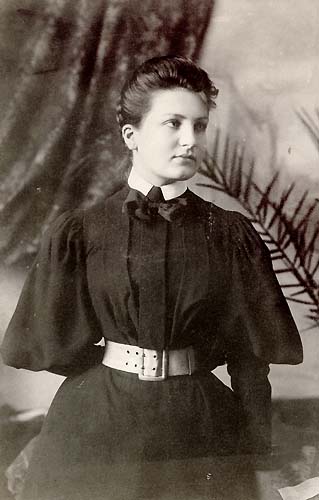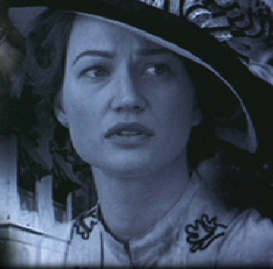| SIDEBAR: Tom Lehrer was the Mark Russell of his day, except he was much more intellectual, much funnier, and had more edge. Imagine if Dennis Miller wrote Mark Russell's songs, and you'll have the general idea. Dr. Lehrer's fans have never stopped missing him since he gave up his silly songs some thirty years ago in order to become a full-time mathematician. He was da man among university swells when I was just starting college. One of my roommates wanted to be Tom Lehrer. (He did manage to write one song in which he rhymed "use ya" with "homoousia".) Here's a link to lots o' Lehrer stuff. There won't be any math questions, but I recommend his most famous song "Poisoning Pigeons in the Park". If you're Catholic, the "Vatican Rag" will kill you, either with laughter or outrage. Lehrer wrote one of his typically arcane songs about Alma Mahler.
|
|||||
|
In addition to the aloof, lifeless
characterizations in the script, some of the actors in this film seem
like amateurs, or maybe they can't understand English. The guy who
played Gropius was a good-looking guy, but clueless on his line
readings. I think maybe he was an outer space alien sent here to
infiltrate us and learn our primitive earthling ways.
If you really have to see this movie because of the subject matter, the movie has some beautiful visuals and Mahler's music, so it makes quite a lovely travelogue. Just ignore those boring people who are constantly talking in front of the Viennese landmarks. |
||||
|
|||||
|
|||||


